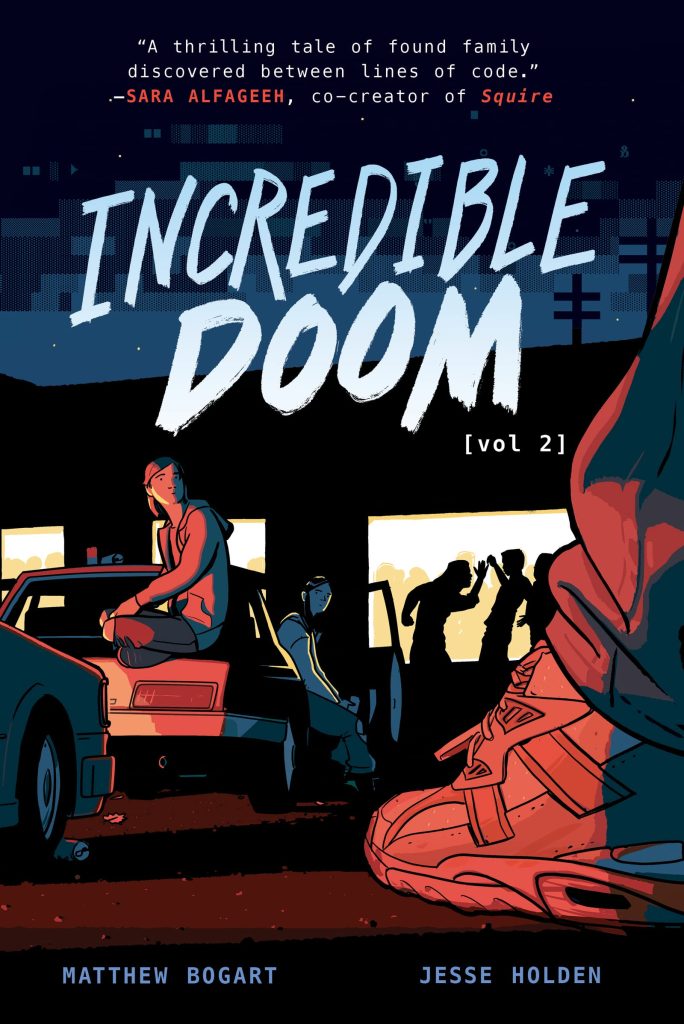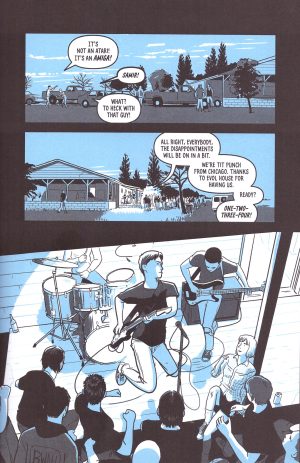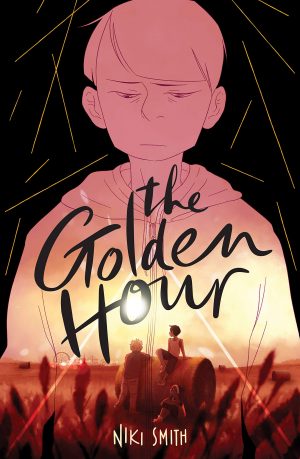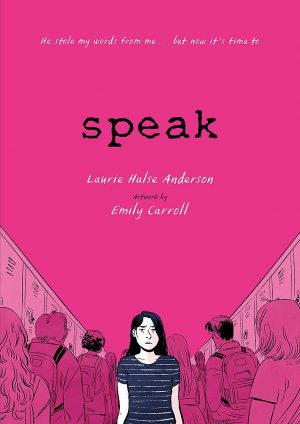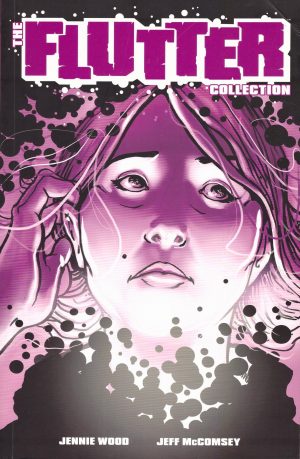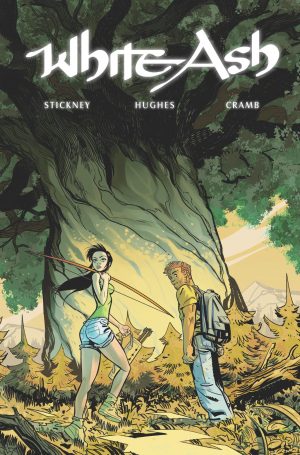Review by Ian Keogh
Incredible Doom is set in the 1990s when bulletin board technology revolutionised the world for those who could see the potential. Matthew Bogart and Jesse Holden co-plot, while Bogart provides the art and script to what has so far been an attention-grabbing story aimed at the teenage market. We first met Alison, helped to escape from her abusive father by Samir, who until then had a relatively happy and stable family life. That’s not been the case for Tina, masking her pain and uncertainty with aggression, and hanging out at Evol House, a commune run by members of her brother’s relatively successful band. That’s in the same town where Richard has just moved, leaving friends behind to become the target of a high school bully. Vol. 1 ended with all four primary cast members at Evol House.
While the possibilities of BBS technology provided an interesting background over the first volume, it was the very relatable cast that ensured success. Bogart ensures their problems can be understood, and why it is they may behave as they do when their lives progress away from parental control. After having her time micromanaged via violence for her whole life Alison very naturally buys into the complete freedom Evol House offers, the rush of her enthusiasm blinding her to less comfortable aspects that Samir sees. If there’s a theme through the book, it’s that.
The cast is widened, with some who previously had background roles stepping into the foreground, with one important new character introduced, adding to the richness already constructed. Bogart’s simple art is strong on both detail and emotion, and as before using blue highlights on black and white is an effective combination. The people are also surprisingly expressive considering Bogart chooses to use black dots to represent eyes.
Bogart’s ending is more concerned with what people might want to see than reality, but then he’s made a point of emphasising fan fiction throughout this sequel, so why not construct your own that works without being as obviously sentimental? It’s about the only wrong note in what’s another compelling, character-driven story.
